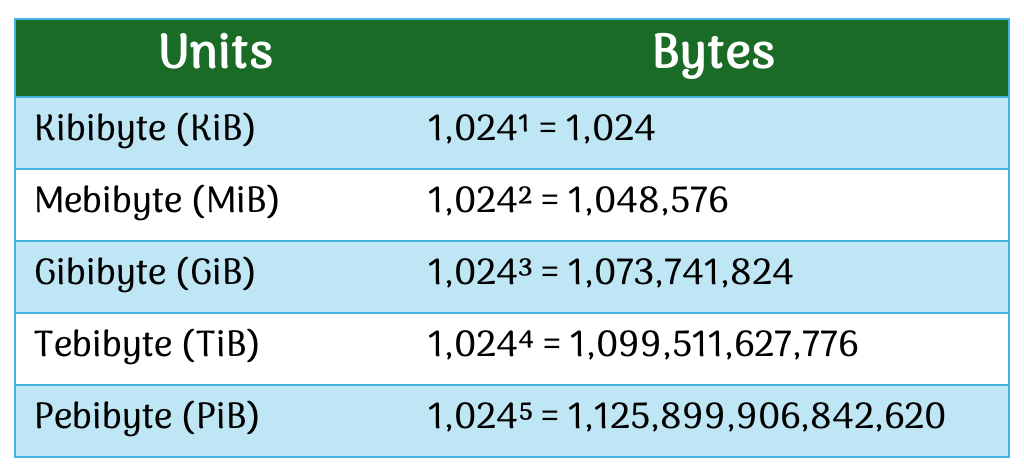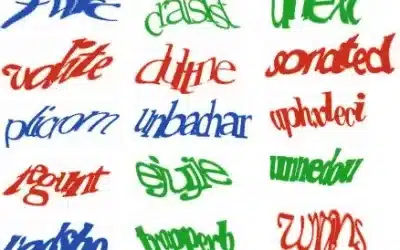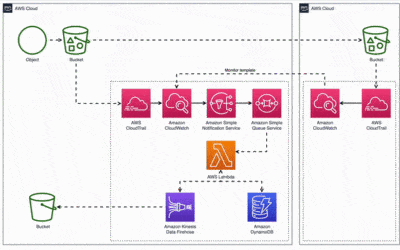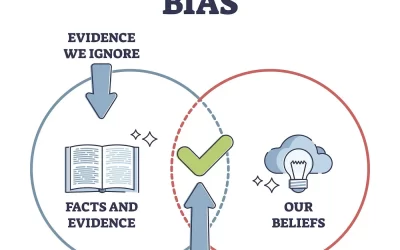GB and GiB: Do you think that GB and GiB are used interchangeably and they mean the same thing? Are they equal? Well, they both look simple by definition however having a long and complicated history.
In this article, we will explore, all those aspects, stories, and interesting facts behind these two.
Let’s imagine, you buy a brand new 1TB hard drive, happily boasting about all that extra space for your photos, videos, and games. But when you plug it in and check the capacity, it shows up as only about 931GB.
Feel Scammed? …. Nope, not really!
Welcome to the confusing yet interesting story of Gigabytes (GB) vs. Gibibytes (GiB).

Background information: Binary vs Decimal
The root of the confusion lies in how computers and humans think about numbers. As we all know computers use the binary system (base-2), where everything is based on powers of two. We, humans, however, generally use the decimal system (base-10) using powers of ten. That is where the whole thing gets confusing.
Before we dive into details, let’s understand a few key units and their conversion:
- Kilobyte (KB): Technically it means 1024 bytes (2¹⁰). Note that this is again “Byte” and not “Bit”. 8 Bits = 1 Byte. But for making it simple, 1000 bytes was easier to work with.
- Megabyte (MB): This should be 1024 KB(2¹⁰), but marketing-wise, it was easier to deal with 1000 KB and it was used.
- Gigabyte (GB): Referring to the above trend it is equivalent to 1024 MB, but often labeled as 1000MB.

We can understand that a metric/decimal “kilo” equals 1,000, but a binary “kilo” equals 1,024.
This difference isn’t huge at smaller scales, but it compounds when grows bigger such as TB (Terrabyte), PB (Petabyte), and so on…
The introduction of the letter “i” by IEC in these Units
To avoid this confusion, The IEC (International Electrotechnical Commission) came up with a new unit for binary systems. They created new units to definitively represent powers of two (binary)
- Kibibyte (KiB): 1024 bytes
- Mebibyte (MiB): 1024 KiB
- Gibibyte (GiB): 1024 MiB
- Tebibyte (TiB): 1024 GiB, and so on…

The aim was to have a distinction between decimal metrics such as KB, MG, GB, etc., and binary metrics. Your 1TB hard drive should be labeled 1TB (decimal systems) or 931 GiB (binary system). Easy, right?
Chaos does not stop here…
The class action lawsuit against major hard-disk and storage manufacturer
Because of the discrepancies mentioned above like 1TB = 931 GB instead of 1000 GB — The class action lawyers sued five flash memory card makers, alleging breach of contract, fraud, and violations of California’s unfair competition laws. This case highlighted the real-world impact of the GB/GiB mess.
So where do we stand today?
Unfortunately, there’s still no single standard. Here’s what you’ll usually encounter:
- Hard Drives/Flash Storage: Listed in decimal (GB = 1000 MB) but with an actual capacity that is closer to the binary value (GiB).
- RAM: Uses accurate binary measurements (GiB)
- Operating Systems: A mixed bag! Some show decimal GB and some GiB. Pay attention to units.
Tips for the Savvy Tech User
- Check the Units: Look for whether a capacity is specified as GB or GiB.
- Do your Math: When in doubt, remember 1GB is about 0.93 GiB.
- Support Accurate Labeling: Push for companies to adopt unambiguous labeling. Consumer awareness matters!
The Final Word
The GB vs. GiB saga is a reminder of how the technical world sometimes clashes with a traditional use case. While it might be a minor annoyance for most, understanding the difference sheds light on the importance of accurate standards and the occasional battle between technical precision and established marketing practices.





0 Comments